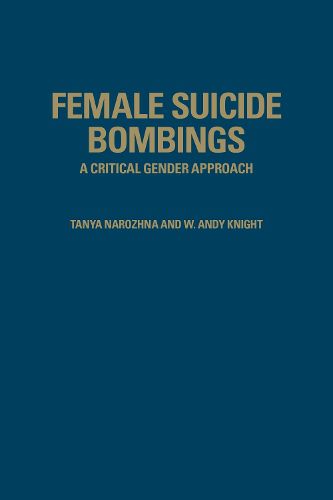Readings Newsletter
Become a Readings Member to make your shopping experience even easier.
Sign in or sign up for free!
You’re not far away from qualifying for FREE standard shipping within Australia
You’ve qualified for FREE standard shipping within Australia
The cart is loading…






As media coverage of terrorism and terroristic acts has increased so too has the discussion about the identities, motives, and gender of the perpetrators. Over the past fifteen years, there have been over 150 reported suicide bombings committed by women around the world. Because of its prominence in media reporting, the phrase female suicide bomber has become loaded with gendered notions and assumptions that elicit preconditioned responses in the West.
FemaleSuicide Bombings critically examines and challenges common assumptions of this loaded term. Tanya Narozhna and W. Andy Knight introduce female suicide bombings as a socio-political practice and a product of deeply politicized, gendered representations. Drawing on a combination of feminist and post-colonial approaches as well as terrorism studies literature, the authors seek to transcend ideological divisions in order to enhance our understanding of how gender, power, and academic practices influence our perceptions of female suicide bombings.
$9.00 standard shipping within Australia
FREE standard shipping within Australia for orders over $100.00
Express & International shipping calculated at checkout
As media coverage of terrorism and terroristic acts has increased so too has the discussion about the identities, motives, and gender of the perpetrators. Over the past fifteen years, there have been over 150 reported suicide bombings committed by women around the world. Because of its prominence in media reporting, the phrase female suicide bomber has become loaded with gendered notions and assumptions that elicit preconditioned responses in the West.
FemaleSuicide Bombings critically examines and challenges common assumptions of this loaded term. Tanya Narozhna and W. Andy Knight introduce female suicide bombings as a socio-political practice and a product of deeply politicized, gendered representations. Drawing on a combination of feminist and post-colonial approaches as well as terrorism studies literature, the authors seek to transcend ideological divisions in order to enhance our understanding of how gender, power, and academic practices influence our perceptions of female suicide bombings.